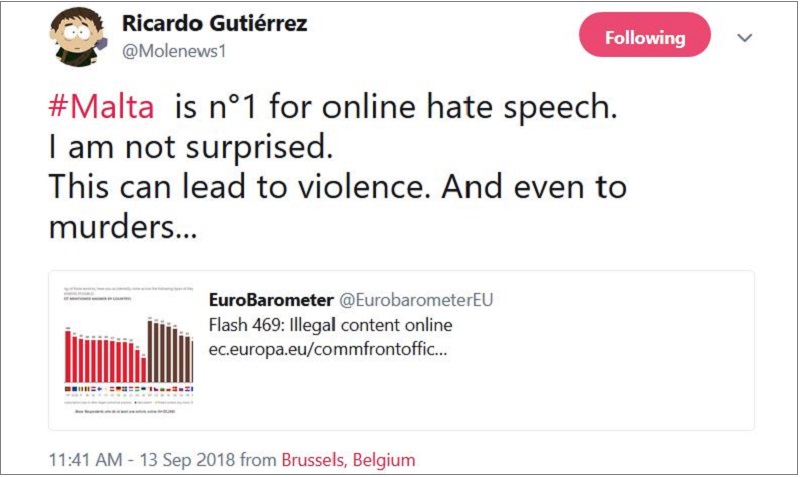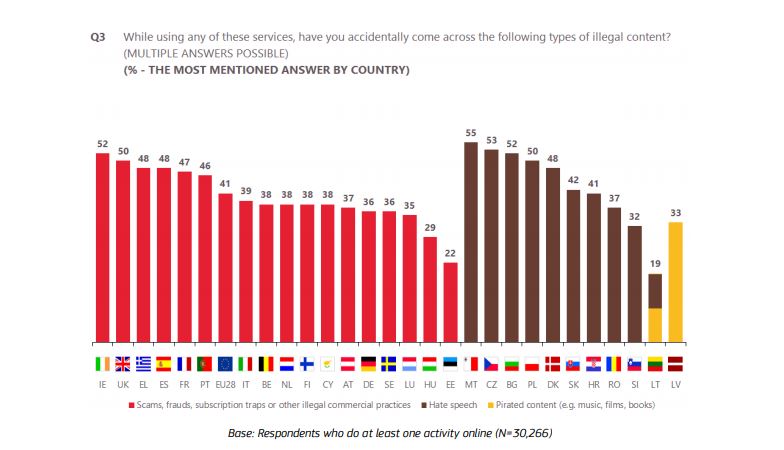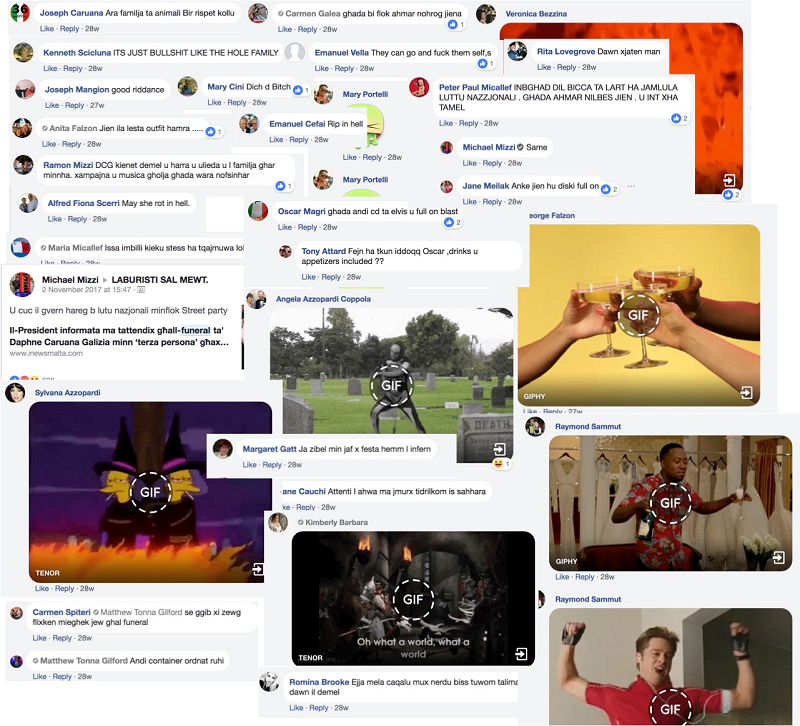Malta ranking first for online hate speech in Europe was of grave concern to Socialist MEP Ana Gomes as well as the General Secretary of the European Federation of Journalists Ricardo Gutiérrez – both highlighted that it could lead to violence and murders.
In a tweet, Gutiérrez said he was not surprised at the recent Eurobarometer study where Malta ranked the first (55%) among the EU countries that came across hate speech online.
“I am not surprised. This can lead to violence. And even to murders,” Gutiérrez said.

This was picked up by Gomes who added: “The result is lethal, as the assassination of Daphne Caruana Galizia showed”.
Gomes is a vociferous critic of the way the Maltese government is handling the investigation into Caruana Galizia’s death, and she led the European Parliament delegation investigating the Panama Papers and rule of law in Malta.
The Eurobarometer study showed Malta topped the list in terms of people most likely to come across hate speech, followed by the Czech Republic (53%), Bulgaria (52%) and Poland (50%).
Estonia (15%), Italy (17%) and Lithuania (19%) are the only countries where fewer than one in five say they have come across hate speech.

Source: Eurobarometer
Online hate groups, and their growth, have been exposed by The Shift following an investigation in pro-Muscat online groups that included top government officials in its members’ list.
These groups, which had around 60,000 members have coordinated attacks on anti-corruption activists, Caruana Galizia and her family. Members of these groups celebrated Caruana Galizia’s assassination.

But online hate speech is not only limited to politicians and activists. In May,the Council of Europe Anti-racism Commission published a report that highlighted the offensive content and hate speech towards migrants in Malta – in particular on social media.
Racist comments, especially on Facebook, were the most prevalent incidents reported. The report cites as an example when, in 2013, the Facebook page of EU Commissioner for Home Affairs Cecilia Malmström was “inundated with racist and abusive comments after she urged the Maltese government to allow 102 migrants to disembark in Malta”.
The commission had also expressed its concern that hate speech was “often a first step in the process towards violence”.
In July, Instagram, Google+, Snapcht and Dailymotion said they were going to join the code of conduct – headed by the European Commission in collaboration with Facebook, Microsoft, Twitter and YouTube to help users notify illegal hate speech on these social platforms, improve support to civil society and coordination with national authorities.
According to the Eurobarometer study, more than three quarters of respondents in each country agree that freedom of expression needs to be protected online.
Respondents aged 15-39 were the most likely to agree freedom of expression needs to be protected online.
Malta was one of seven countries where at least one in 10 respondents said they came across terrorist material online.
The majority of respondents agree Internet hosting services should immediately remove content flagged as illegal by public or law enforcement authorities,ranging from 88% in Cyprus, 78% in Malta and 76% in Greece and Germany to 51% in Slovakia.












